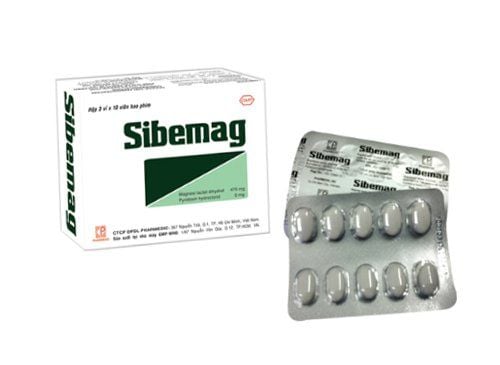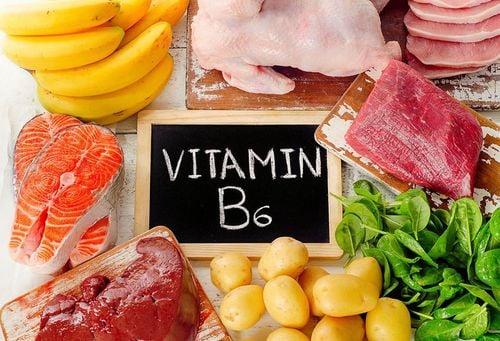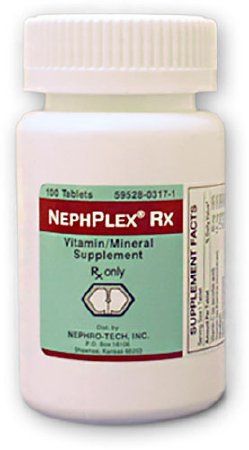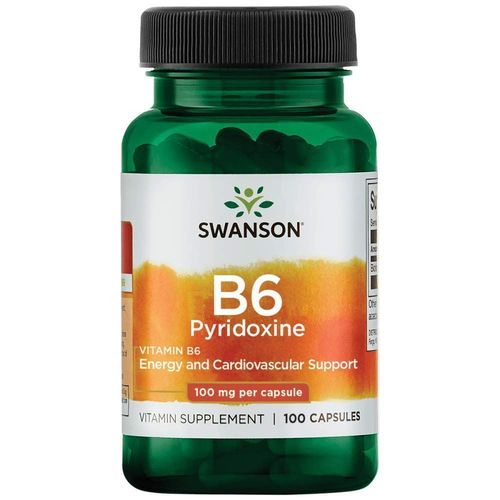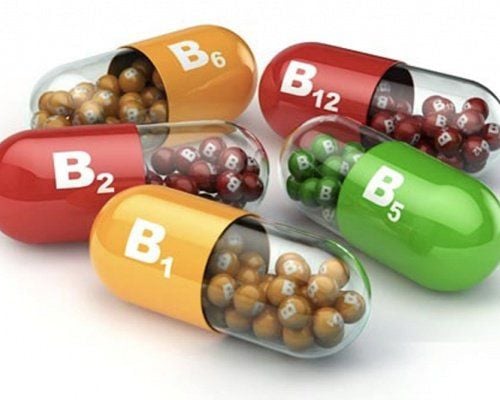This is an automatically translated article.
The article is professionally consulted by Master, Doctor Phan Ngoc Hai - Pediatrician - Neonatologist - Vinmec Danang International General HospitalVitamin B6 (pyridoxine) is important for the normal development of the brain, as well as the nervous and immune systems. Food sources rich in vitamin B6 include poultry, fish, potatoes, green beans, and bananas. Vitamin B6 can also be taken as a dietary supplement, usually as a capsule, tablet, or oral liquid.
1. How much vitamin B6 do you need each day?
According to nutritional recommendations, the recommended daily intake of vitamin B6 for men aged 14 to 50 years is 1.3 mg; age 51 and older is 1.7 mg; for women 14 to 18 years old is 1.2 mg; 19 to 50 years old is 1.3 mg and 51 years and older is 1.5 mg. For pregnancy and lactation, vitamin B6 intake should be increased to 1.9 mg and 2.0 mg, respectively.In addition, the intake of tolerable levels of vitamin B6 or the maximum daily dose that is unlikely to cause adverse side effects in the general population is at a fairly large value. Specifically, the maximum acceptable amount of vitamin B6 for adults 19 years of age and older is 100 mg per day and in slightly less amounts in children and adolescents. Indeed, this high vitamin B6 content can only be achieved by taking supplements through the use of dietary supplements. Even higher doses of vitamin B6 supplements are sometimes prescribed for medical reasons. However, patients need to be supervised by a doctor because excess vitamin B6 can cause poisoning.
2. The role of vitamin B6 and human health

The benefits of vitamin B6 for human health are presented as follows:
Cardiovascular disease: High homocysteine levels in the blood are associated with an increased risk of heart disease and stroke as it can promote formation of blood clots and excess free radical cells as well as can impair the normal function of blood vessels. A lack of vitamin B6, along with vitamin B12 and folic acid, can increase homocysteine levels. Although epidemiological studies have found that vitamin B supplementation can reduce homocysteine levels, the potential for a concomitant reduction in the risk of cardiovascular events with the use of this vitamin requires further evidence. Cognitive ability: Vitamin B6 may indirectly help brain function by reducing homocysteine levels, as high levels of this protein in the body have been linked to increased rates of dementia, Alzheimer's disease, and dementia. higher cognitive decline. Indeed, there have been several controlled trials showing that vitamin B6 supplementation can slow cognitive decline. Cancer: Epidemiological studies have shown that eating more foods with vitamin B6 and higher blood levels of B6 is significantly associated with a reduced risk of all cancers, especially colorectal cancer. Digest. Among them, vitamin B6 is thought to play a significant role in colorectal cancer thanks to the activity of enzymes that can reduce oxidative stress and the spread of tumor cells. Vitamin B6 deficiency is associated with chronic inflammation, a risk factor for colorectal cancer.

Morning sickness: Vitamin B6 has long been credited as a remedy for nausea related to pregnancy and its most severe form is severe nausea, sometimes requiring hospitalization due to severe dehydration. However, the use of individual vitamin B6 supplements, outside of standard multivitamin preparations, is not conclusive about the benefits of vitamin B6 and is therefore not recommended.
3. Food sources rich in vitamin B6
Vitamin B6 is found in many animal and plant foods, such as:
Beef liver Tuna Salmon Grains Green beans Poultry Some vegetables and fruits, especially dark green leafy vegetables, bananas , papaya, orange and cantaloupe
4. Signs of Vitamin B6 Deficiency and Poisoning
4.1 Vitamin B6 deficiency Vitamin B6 deficiency often occurs at the same time when other B vitamins in the body are also in low levels, especially vitamin B12 and folic acid. A mild deficiency may have no symptoms, but a more severe or prolonged deficiency may indicate the following:
Small red blood cell anemia Skin disease Depression Confusion Decreased immunity Some conditions Conditions that may increase the risk of developing vitamin B6 deficiency by interfering with absorption:
Chronic kidney disease Autoimmune intestinal disorders such as celiac disease, ulcerative colitis and Crohn's disease Autoimmune inflammatory disorders like rheumatoid arthritis Alcoholism
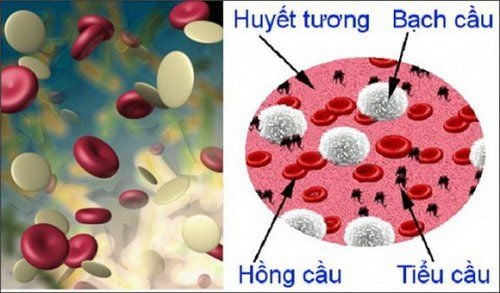
4.2 Vitamin B6 Poisoning It is difficult to reach toxic levels of B6 from food sources alone. Vitamin B6 is a water-soluble vitamin, so unusable amounts are eliminated from the body in the urine. However, toxic levels are also possible with very high doses of vitamin B6 for long periods of time in excess of 1,000 mg per day.
Symptoms that are pointed towards vitamin B6 toxicity are listed below and will usually subside after high doses are stopped, including:
Neuropathy in the feet and hands Ataxia, control of movements of the body Nausea In short, a healthy and varied diet is quite able to provide enough vitamin B6 in the amount needed by everyone. However, for people with kidney disease, malabsorption syndromes and certain other conditions, additional vitamin B6 is necessary. At this time, the content of vitamin b6 should be indicated and monitored depending on the case, avoid arbitrarily supplementing vitamin B6 alone without being balanced with other B vitamins because it can easily lead to poisoning. In case you want to know if you have a vitamin B6 deficiency, people can go to a reputable hospital to conduct regular health checks. Currently, Vinmec International General Hospital has been continuously investing in renovation of modern equipment, and at the same time applying science and technology, the latest medical treatments to treatment. Therefore, Vinmec International General Hospital is considered as an international standard medical care address in Vietnam.
Currently, Vinmec is implementing a lot of periodic health checkup packages suitable for each age, gender and individual needs of customers with very favorable price policy, including:
General health checkup package Work permit- issue work permit Child health check-up package Standard general health check-up package Special general health check-up package VIP general health check-up package Diamond general health check-up package Advantages of Vinmec's health check-up packages mean that customers will be screened and screened by a system of modern equipment to help support the best diagnosis today such as PET/CT, MRI, CT 640, system The world's leading advanced ultrasound machine, international standard laboratory system,... After a general examination, if any diseases are detected, customers can use services from other specialties. hospital with outstanding quality of treatment.
Please dial HOTLINE for more information or register for an appointment HERE. Download MyVinmec app to make appointments faster and to manage your bookings easily.
Reference source: hsph.harvard.edu




